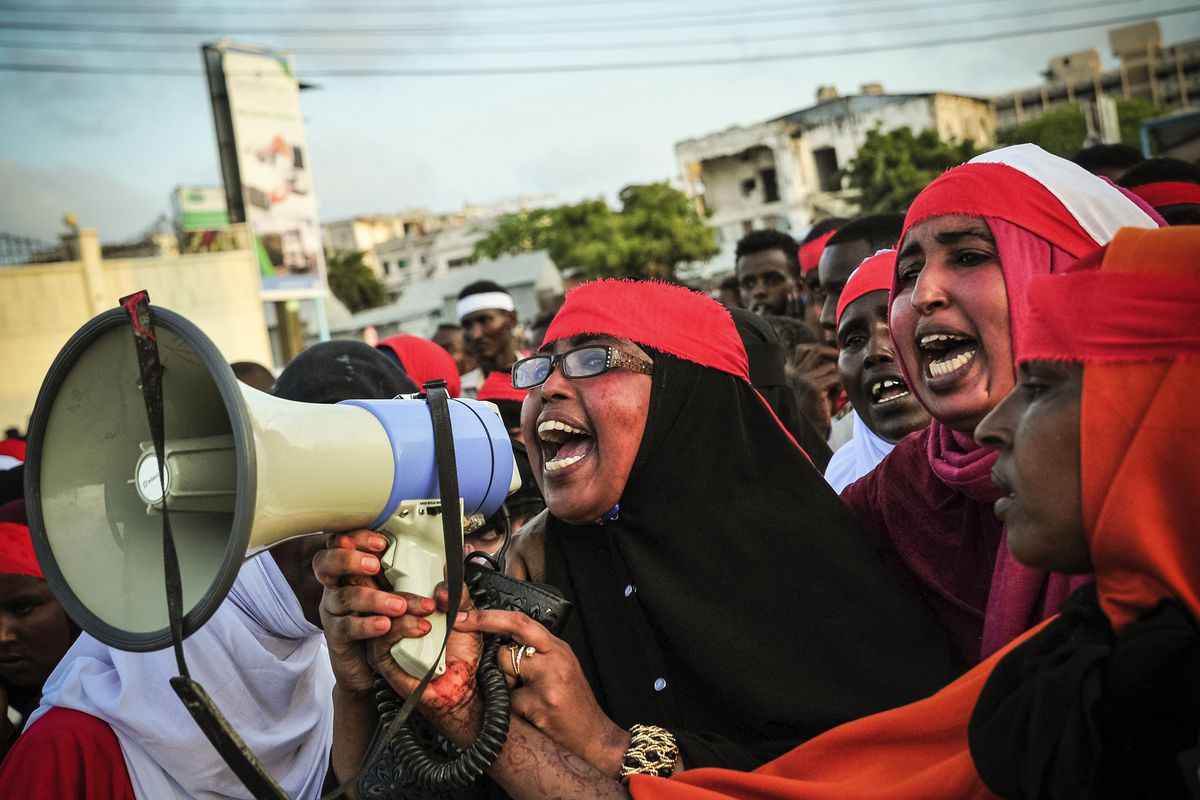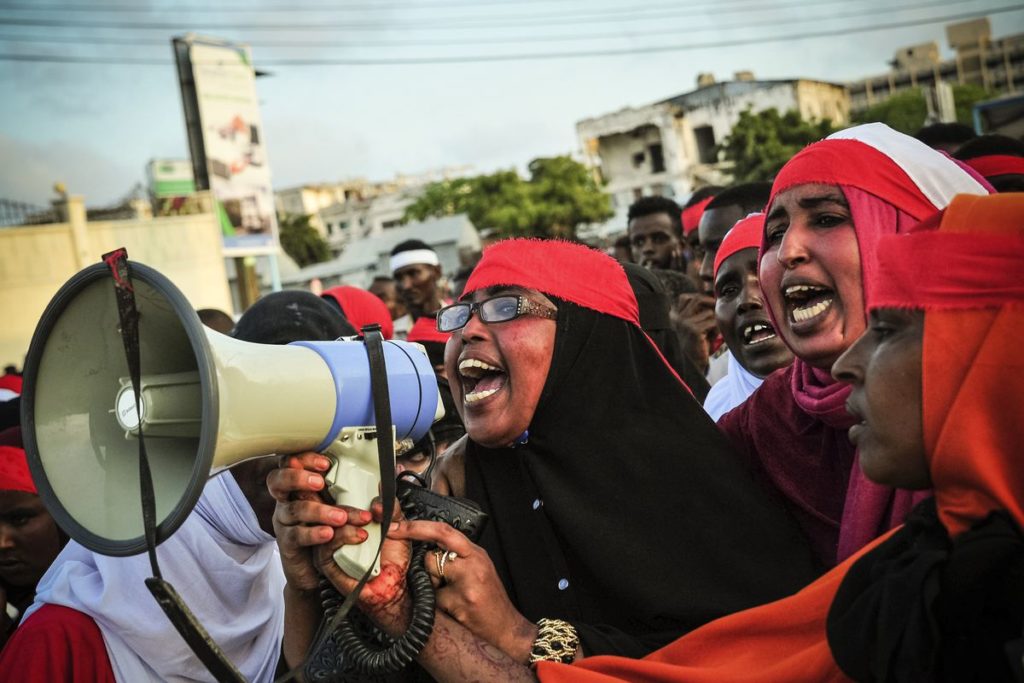Somalis are ready to liberate their country but they lack the leadership to mid-wife the liberation


By Ahmed Abdihadi
Five days after the October 14 deadly terror attack in Mogadishu, President Mohamed Abdullahi Farmaajo called for a joint session of the Federal Parliament in which he was expected to present his next course of action.
The President was expected to declare war in tandem with constitutional dictates which bestow upon him that sole mandate. He was to marshal support for a united Parliament. He was to deliver a resounding war message; one which called for unity of purpose, a call for politicians to rise above political, clan and any other differences for the common course of a wounded people, a nation ready to liberate itself from the shackles and manacles of extremism.
However as it would turn out a day later, the meeting was cancelled indefinitely.
The President thereafter summoned the regional state leaders for the National Security Council meeting slated for this Saturday.
JETTED OFF
But even before he could talk with and consult with these two important institutions, (Parliament and NSC), the President was airborne; off to Uganda. Chief of Defense Forces Abdiweli Jama Gorod told the media the president would be seeking military support from his Ugandan counterpart and ‘urge the war against Al-Shabaab be expedited.’ This is in readiness for an expected major military offensive against Al-Shabaab strongholds in the southern provinces of the country.
As the President sent out invitations to the regions, the state leaders under the newly formed Cooperation Council fired another salvo. They warned the Federal Government of what they called “naked intervention’ against federal states.
EXECUTIVE STRUGGLES
The statement of Federal state Leaders is again a clear sign of the political gap between the leadership of Federal government and Federal states. Also, political analysts and insiders understand tension and differences within the Federal cabinet further exacerbate the crisis. Take an example- the Interior Minister Abdi Farah “Juha” whose role in the relief efforts during the October 14 catastrophe could not be traced. Being the Interior Minister, he would have been at the centre of operations coordinating the relief efforts alongside the Humanitarian Affairs and Health Ministries.
Explanation to this? -Differences with Prime Minister Hassan Khaire.
PUBLIC WILL
President Farmaajo was fortunate to have come to office as one of the most popular leaders the country has had. Thousands of Somalis inside and outside the country held rallies in show of support to him. I was myself included among those who came out in the capital Mogadishu; nothing, but, in his support. Everyone prayed for his success. Every one prayed he would be an established leader.
But his betrayal of public trust and confidence has been phenomenal. He has showed no signs of strong leader, even mediocre one. He named a Prime Minister Hassan Ali Khaire, a novice in politics but a man deeply embedded in humanitarian world and business. A former oil executive with the controversial Soma Oil and Gas, Khaire was to be exonerated of any links with extremist groups in Somalia after the UN Monitoring Group associated him with the groups.
According to rules of power one should act decisively in the beginning. But not taking the path of that important rule, the (President) said in many occasions he wanted to pioneer a political precedent in which the president leaves the business of the country to the prime minister and the cabinet. That he would only takes the role of “Nabadoon” Somali term for “ceremonial”.
Naïve in politics as he was and with all the undisputed power on his shoulders, PM Khaire named a cabinet in which most of its members are less established and less popular within their clans and the public at large.
SERIES OF TRAGEDIES
The bitter events followed. The Bariire incident in which 10 civilian farmers were killed. The extraditions of Somali Ogaden Movement officer leader Qalbi Dhagah to Ethiopia. Incessant Al-Shabaab in the capital and elsewhere in the country. The Galmudug State chaos. Not the mere events have shocked the people. But what has baffled all and sundry was the lack of political skills by cabinet and prime minister and how they approached each event.
Now, Al-Shabaab has hit the capital with the most devastating attack in the country’s history and there is no clear strategy to face the Organization. The president once calls urgent joint session meeting with the Parliament and again with Regional leaders and goes off to neighboring country without holding any of the meetings request by his Office.
UNBECOMING LEADERSHIP
The public demonstrations following the attack signified a citizenry tired and ready to pay the ultimate price to at least secure peace for their children and future generations. Women sang war songs and narrated poems of a people no longer afraid of being booked in the assassin’s list.
The opportunity is that the public is ready to liberate themselves from what they have seen Oct 14, but they lack effective leadership to mid-wife that liberation. And that has been the tragedy of Somalia since its birth.
The author is Freelance Journalist and Political analyst
![]() @YouthRevolution
@YouthRevolution